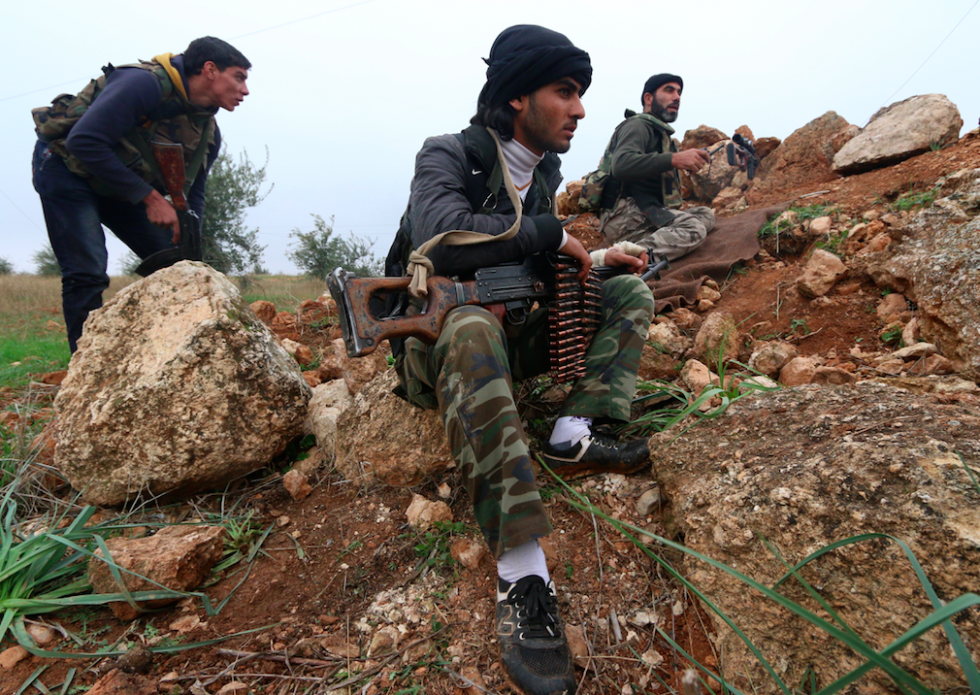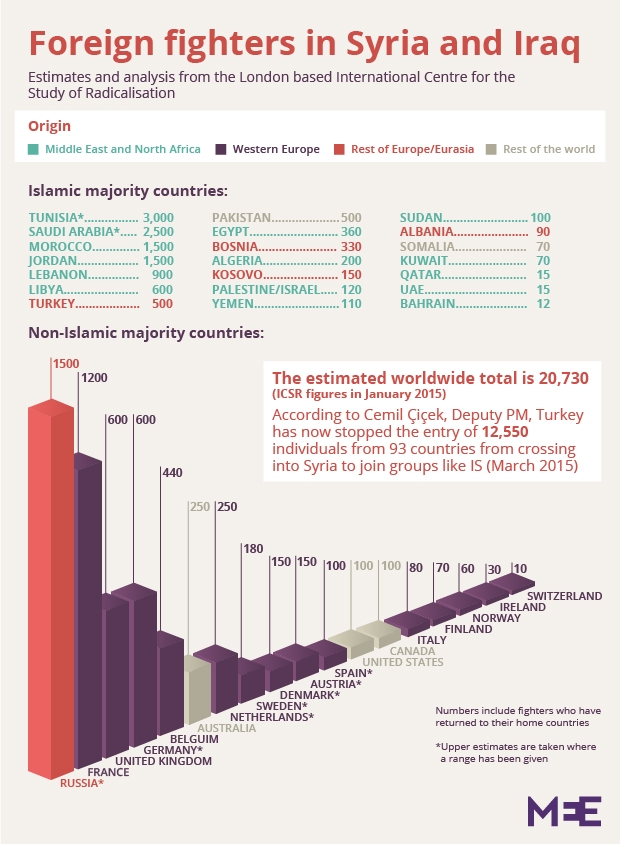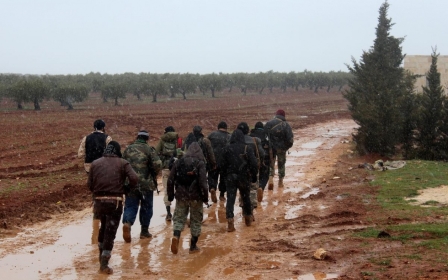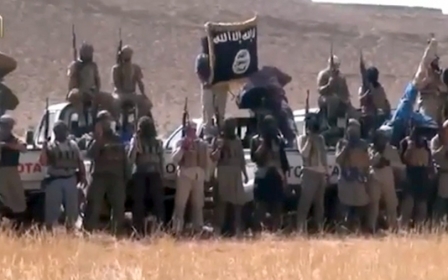More than 25,000 foreign fighters joining groups like Nusra and IS: UN

At least 25,000 foreign fighters from more than half of the world’s countries have left their homes to join militant groups like al-Qaeda or Islamic State, the UN has said.
According to the report seen by AFP on Thursday, fighters from more than 100 countries have now travelled to fight with militant groups mainly in Syria and Iraq, but increasingly also in Libya. Yemen, Pakistan, Somalia and Afghanistan have also seen an influx.
In the last 12 months there has been a 71 percent increase in the number of foreign fighters worldwide travelling to join these groups, with European and Asian countries reporting sharp increases, the report said.
"The rate of flow is higher than it has ever been historically, and is mainly focused on movement into the Syrian Arab Republic and Iraq, with a growing problem also evident in Libya," the report added.
The latest figures raise serious questions about UN efforts to stem the flow of foreign militants, which the report described as an "urgent global security problem". The UN Security Council adopted a resolution in September that called on governments to make it a serious crime for their nationals to enlist as a foreign fighter.
"The strategic threat is even greater in 2015 and in the years that stretch ahead," the group of experts behind the report said.
Syria and Iraq have become a "veritable finishing school" for militants, akin to what happened in Afghanistan during the 1990s, the report said.
Some of the increase in foreign fighters has been attributed to the rise of the Islamic State group, which has captured world headlines with its lighting assault in Iraq last year and its brutal techniques that include beheadings, mass rapes and large-scale mosque bombings.
Since the group began to rise to prominence in 2013, 21 other militant groups have pledged their allegiance while 10 others have voiced their support, the US monitoring body IntelCenter said on Thursday.
A list published by the centre, which monitors militant groups, said that these 31 organisations were dotted across the world in an arc going from Algeria in the west to Indonesia in the east.
Accusations fly
The international community has long been pointing fingers at one another for the rise in foreign fighters. While countries of departure have accused transit countries such as Turkey of not doing enough to curtail the influx, Ankara and others have said that more must be done on the home front to prevent people from travelling.
UN experts, however, called for the burden to be shared and for all countries to adopt effective policies to counter the trend by pursuing "counter-messaging" to young people while also stepping up intelligence-sharing.
On Thursday, Tunisia lashed out at Turkey – which shares a large border with Syria and Iraq - for allegedly facilitating the transit of fighters.
The accusation by Foreign Minister Taieb Baccouche comes just two weeks after the Islamic State group claimed responsibility for a deadly attack on tourists at the Bardo National Museum.
Tunisia says 3,000 of its citizens are fighting along militant groups in Syria, Iraq and Libya, and that 500 battle-hardened veterans have returned to the country where they are considered a security threat.
"We have asked our ambassador in Turkey to draw the attention of the Turkish authorities to the fact that we do not want a Muslim nation such as Turkey to help directly or indirectly terrorism in Libya by facilitating the movements of terrorists," Baccouche said.
He said Turkey was a "passage point" for fighters who go to Syria or for those who travel to Libya and then infiltrate across the porous border into Tunisia.
Ankara, however, has reported a number of arrests in recent months and insists it is doing all it can to control the border. In the latest incident this week, nine Britons and one French citizen were seized by authorities trying to cross into Syria.
Tunisia has said that the two gunmen who had killed 22 foreign tourists and a policeman at the Bardo on 18 March had trained on the use of weapons in Libya, where IS has gained a foothold in recent months.
The two assailants were themselves gunned down, and on Sunday Tunisia said it had killed the alleged leader of the cell behind the massacre, Algerian Lokmane Abou Sakhr. On Thursday, Tunisia also announced that that security forces arrested two "terrorist" cells whose members were mostly suspected of links to the attack.
The interior ministry said that 46 suspects have now been detained over the 18 March attack that killed 21 foreign tourists and a policeman at the Bardo National Museum.
The latest arrests involved "two terrorist cells", and the majority of those held had links to the gunmen "through logistical support, the transport of weapons or hiding those involved,” the ministry said in a statement.
New MEE newsletter: Jerusalem Dispatch
Sign up to get the latest insights and analysis on Israel-Palestine, alongside Turkey Unpacked and other MEE newsletters
Middle East Eye delivers independent and unrivalled coverage and analysis of the Middle East, North Africa and beyond. To learn more about republishing this content and the associated fees, please fill out this form. More about MEE can be found here.




